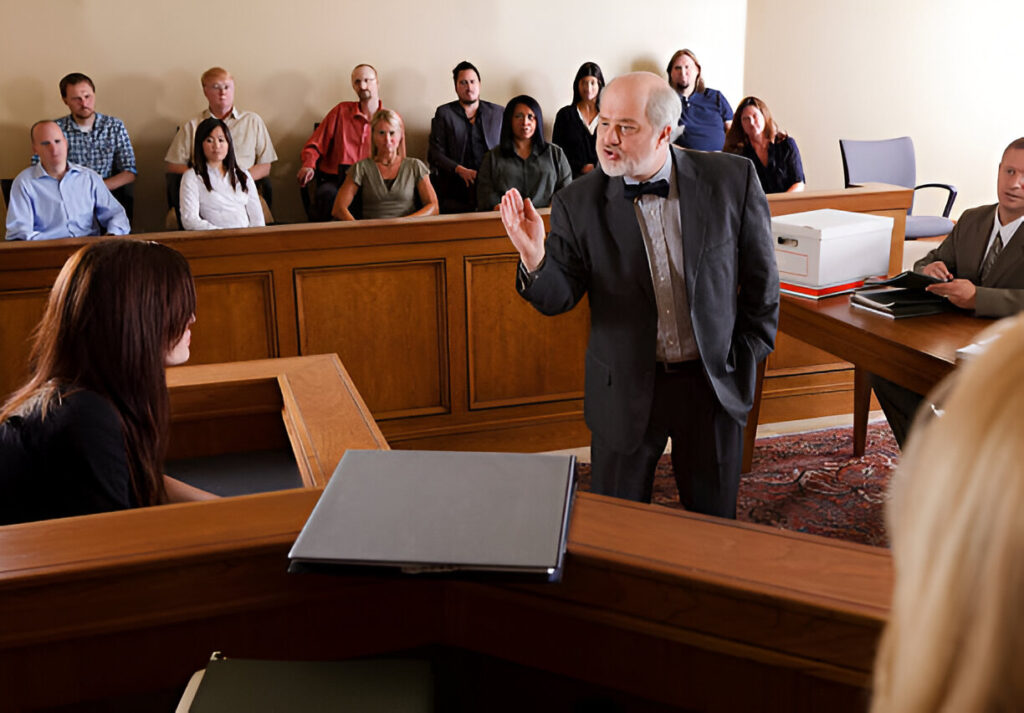Expert witnesses play important roles in courtrooms, bringing specialized knowledge that can shed light on complex cases. Expert witnesses in professions such as health, engineering, finance, or forensics offer professional perspectives instead of what they have seen or heard. These professionals assist juries and courts in deciphering technical language, interpreting evidence, and basing conclusions on specific facts. Anyone engaged in litigation must understand what qualifies someone as an expert witness, along with the criteria for their selection. Here’s a closer look at expert witnesses, including their roles and the stringent selection process that ensures their credibility and impact in legal proceedings.
Contents
- 1 The Essential Role of an Expert Witness in Legal Proceedings
- 2 Qualifications and Criteria for Expert Witness Selection
- 3 The Importance of Credibility and Objectivity in Expert Testimony
- 4 The Process of Expert Witness Engagement and Retention
- 5 Cross-Examination and the Challenge of Defending Expert Opinions
- 6 Conclusion
The Essential Role of an Expert Witness in Legal Proceedings
Expert witnesses are essential in court proceedings as they provide informed opinions that help to close the knowledge gap between complicated technical specifics and the general understanding of the court. These individuals are called upon when a case requires clarification that ordinary witnesses or legal professionals cannot provide. In medical malpractice litigation, for instance, a competent medical practitioner might be required to clarify complex medical standards and if the acts of a healthcare provider fell within acceptable practices. Similarly, in engineering disputes, an expert witness could explain difficult design defects or safety procedures. Expert witnesses enable the court to understand intricate details by simplifying technical material, therefore directly affecting the course of the case.
Qualifications and Criteria for Expert Witness Selection
Choosing an expert witness is a careful procedure motivated by credentials and reputation. Usually shown by advanced degrees, published works, or a track record of relevant experience, a person must have great knowledge, abilities, or experience in their profession to qualify as an expert witness. However, credentials are not sufficient. Courts also assess an expert’s capacity for straightforward communication, as even the most competent specialists might fail if they cannot clearly present difficult material to non-experienced individuals. For situations requiring DNA analysis, for instance, a seasoned forensic scientist might be the perfect expert witness as they can rationally explain their results. Courts also exercise great caution over conflicts of interest or prejudices, thereby ensuring that the expert’s evidence stays objective and trustworthy.
The Importance of Credibility and Objectivity in Expert Testimony
Effective expert testimony consists fundamentally of credibility and impartiality. An expert witness shown in court has to be seen as an impartial person giving facts and interpretations free from bias toward either side. Maintaining the integrity of their testimony depends on this neutrality, as any sign of bias could discredit the expert. Expert witnesses with a past of testifying only for one side, either plaintiff or defense, are often under close inspection for potential partiality. Beyond neutrality, credibility is enhanced by the expert’s track record, which includes previous courtroom testimony, research, and recognition in their field. In financial disputes, for example, a well-respected economist with papers in peer-reviewed publications is more likely to be trusted for their insights than someone without peer recognition or experience in high-stakes situations.
The Process of Expert Witness Engagement and Retention
The engagement of an expert witness is a complex process that includes both selection and preparation stages. Usually, law firms look thoroughly to find people with certain credentials fit for the needs of the case. Once a suitable expert is found, their expertise, public record, and any possible prejudices are carefully checked. Expert engagement involves more than just selection; it also includes preparation, in which the legal team familiarizes the expert with case-specific information. In order to develop a solid, objective opinion, the expert then independently reviews the available information. This preparatory stage is crucial as the expert’s knowledge of the complexities of the case guarantees their evidence resists cross-examination. In high-stakes situations, professionals may even take part in simulated trials to enable the legal team to prepare their strategy and foresee objections to their evidence.
Cross-Examination and the Challenge of Defending Expert Opinions
One of the most important phases is cross-examination, where the knowledge, experience, and objectivity of an expert witness are tested. Opposing counsel seeks to undermine the expert’s evidence during cross-examination by looking into their practices, credentials, and any apparent biases. Well-prepared experts can handle this scrutiny by clearly expressing their opinions and supporting the scientific or technological underpinnings of their discoveries. Cross-examination, however, is often a difficult task even for seasoned experts, as lawyers might try to highlight contradictions or question the objectivity of the expert. Expert witnesses must, therefore, not only be subject-matter specialists but also skilled in quick thinking and remaining calm under intense questioning. The course and result of the case may be greatly altered depending on their capacity to maintain the integrity of their evidence during cross-examination.
Conclusion
Expert witnesses act as anchors of clarity in legal proceedings, transforming complex technicalities into understandable, relevant insights. Their expertise bridges complex information gaps, ensuring that judges and juries understand the finer details that influence case outcomes. These professionals maintain the credibility and fairness of judicial processes by carefully selecting, stringent vetting, and rigorously preparing, ensuring that the truth is accessible to all involved parties.



